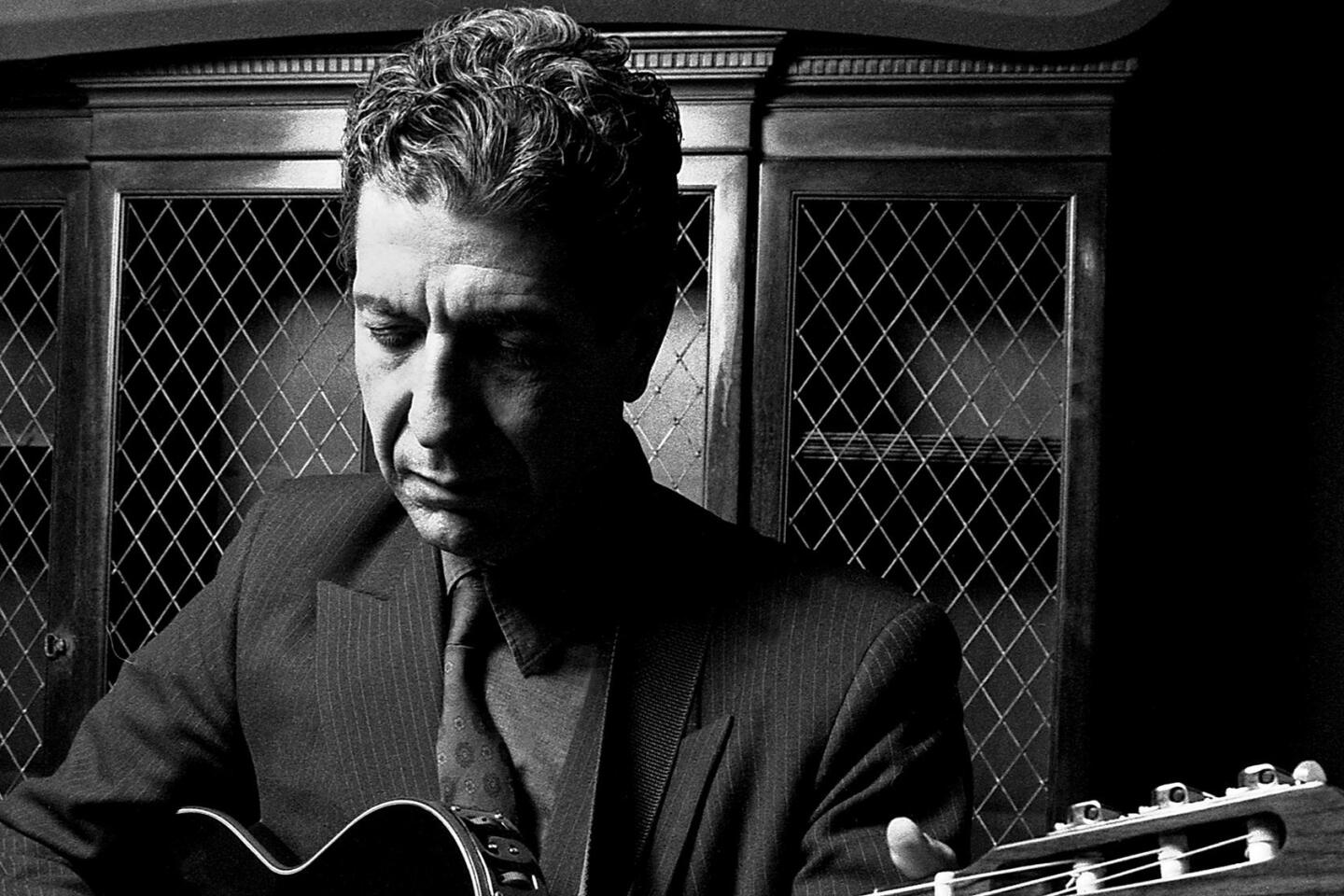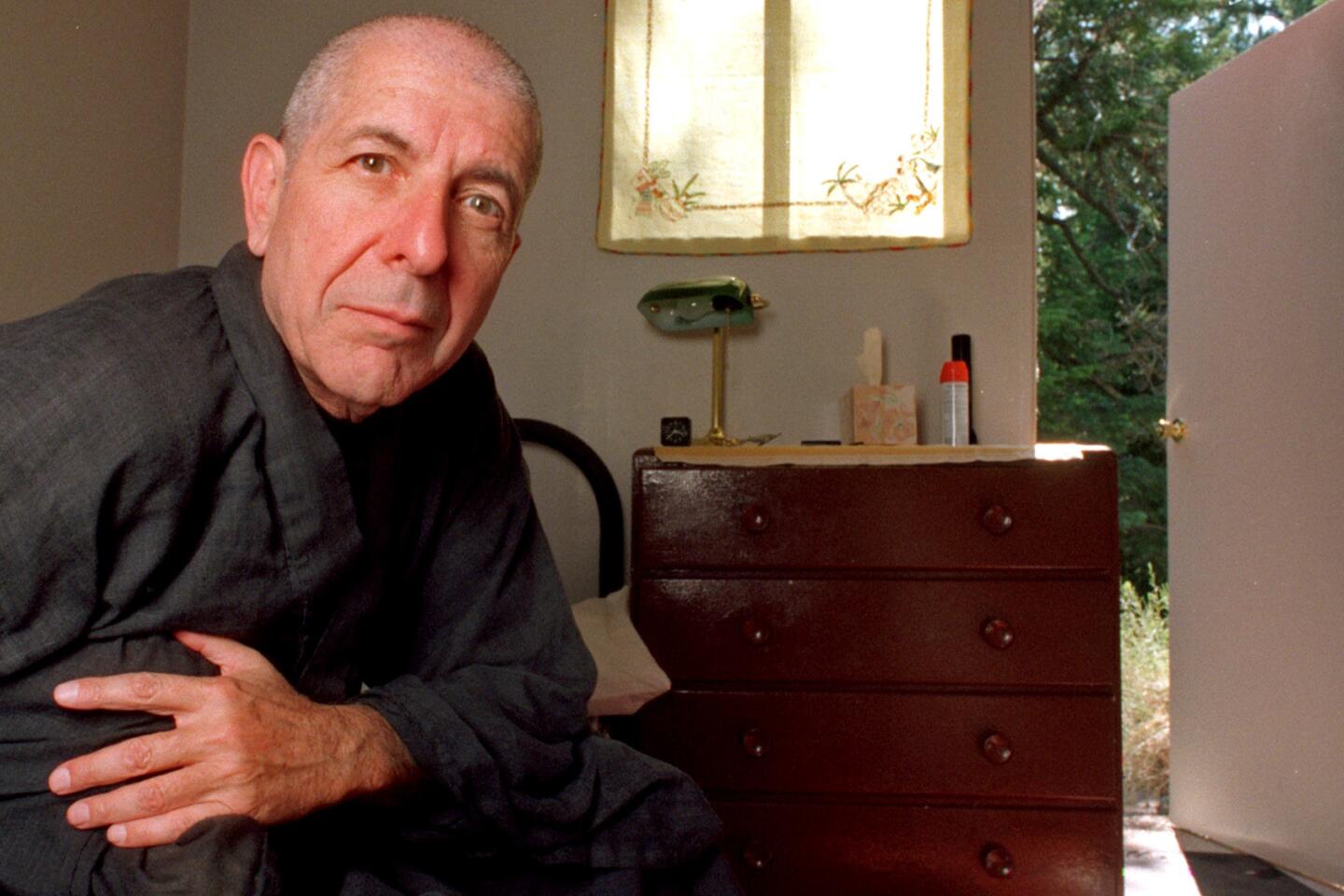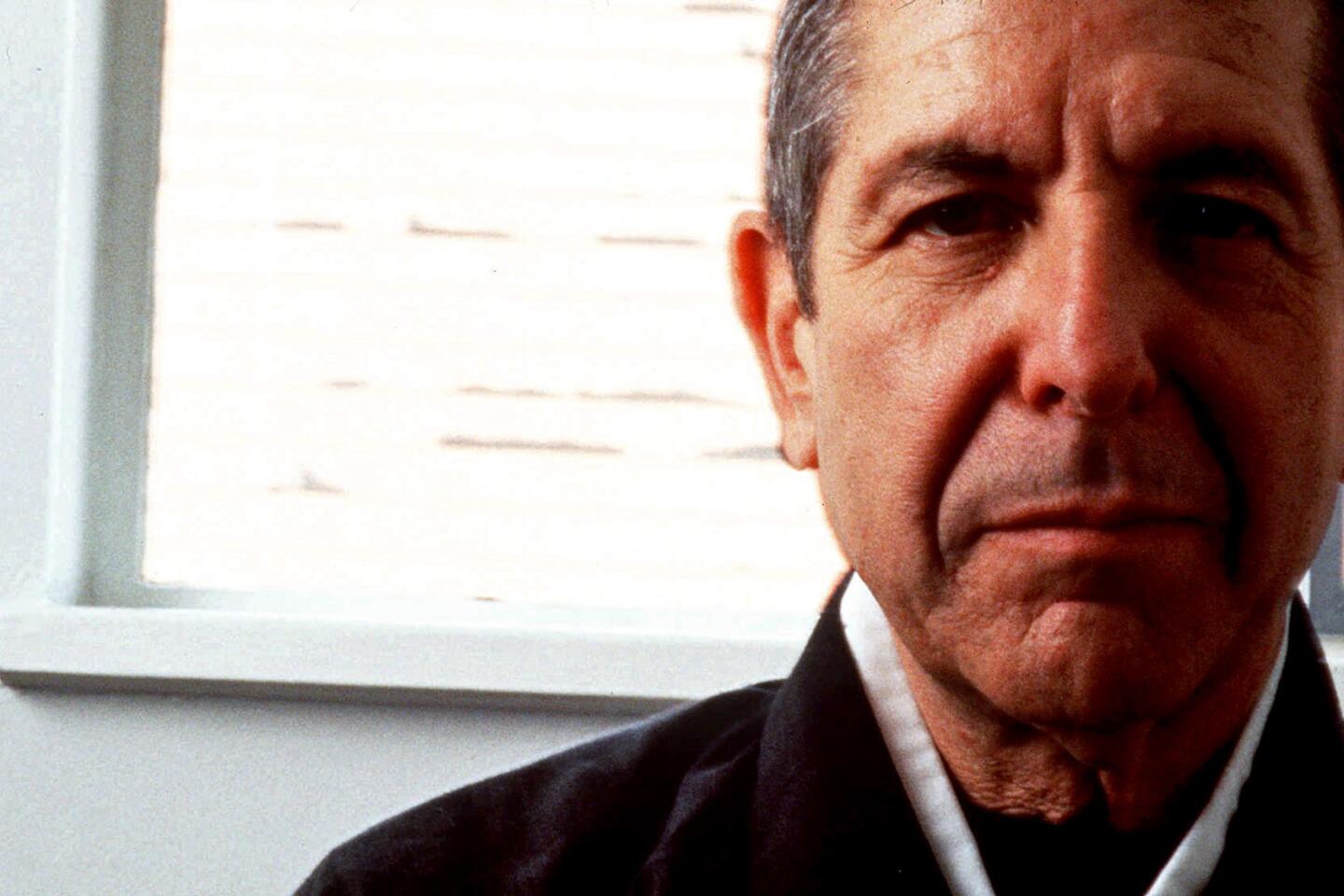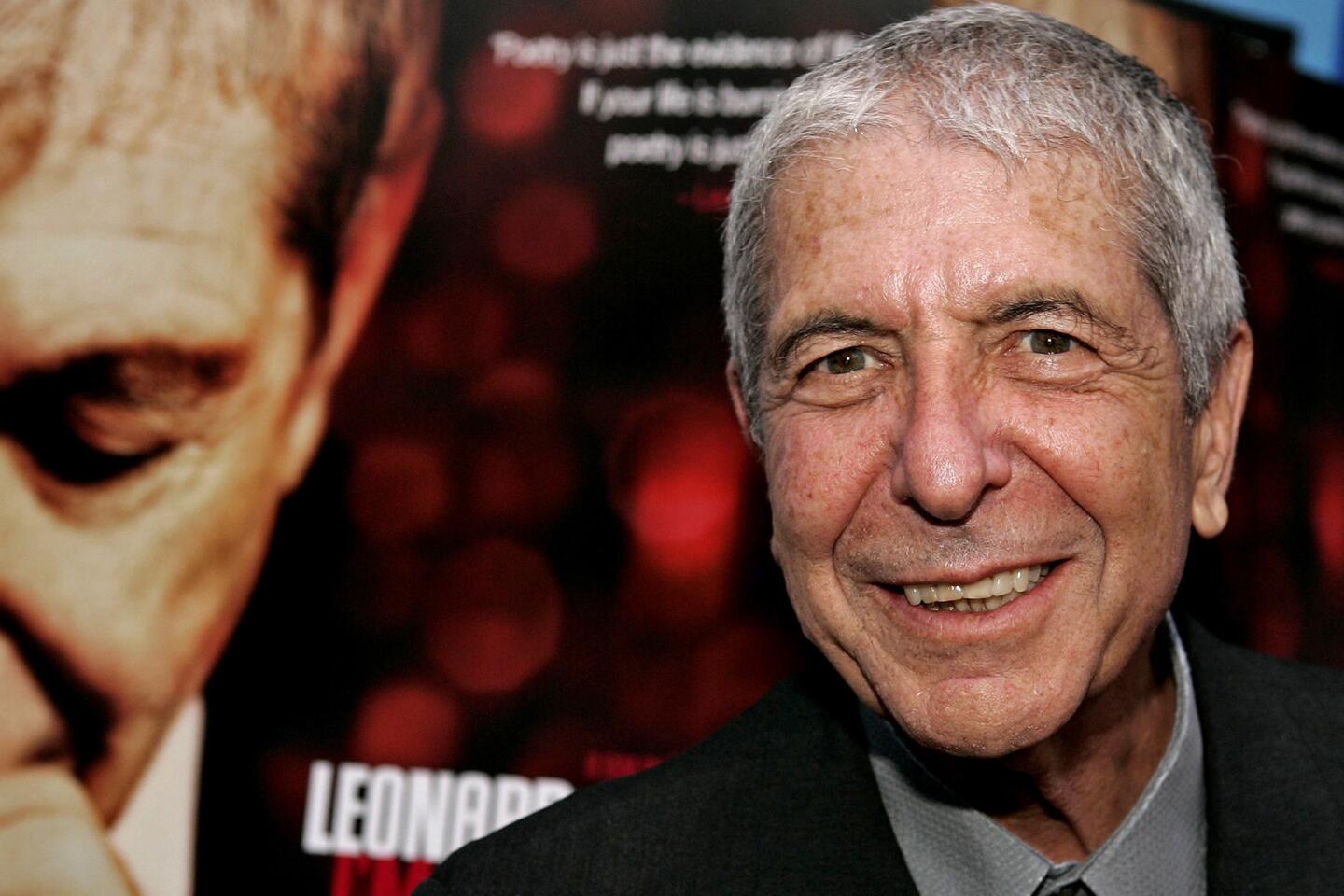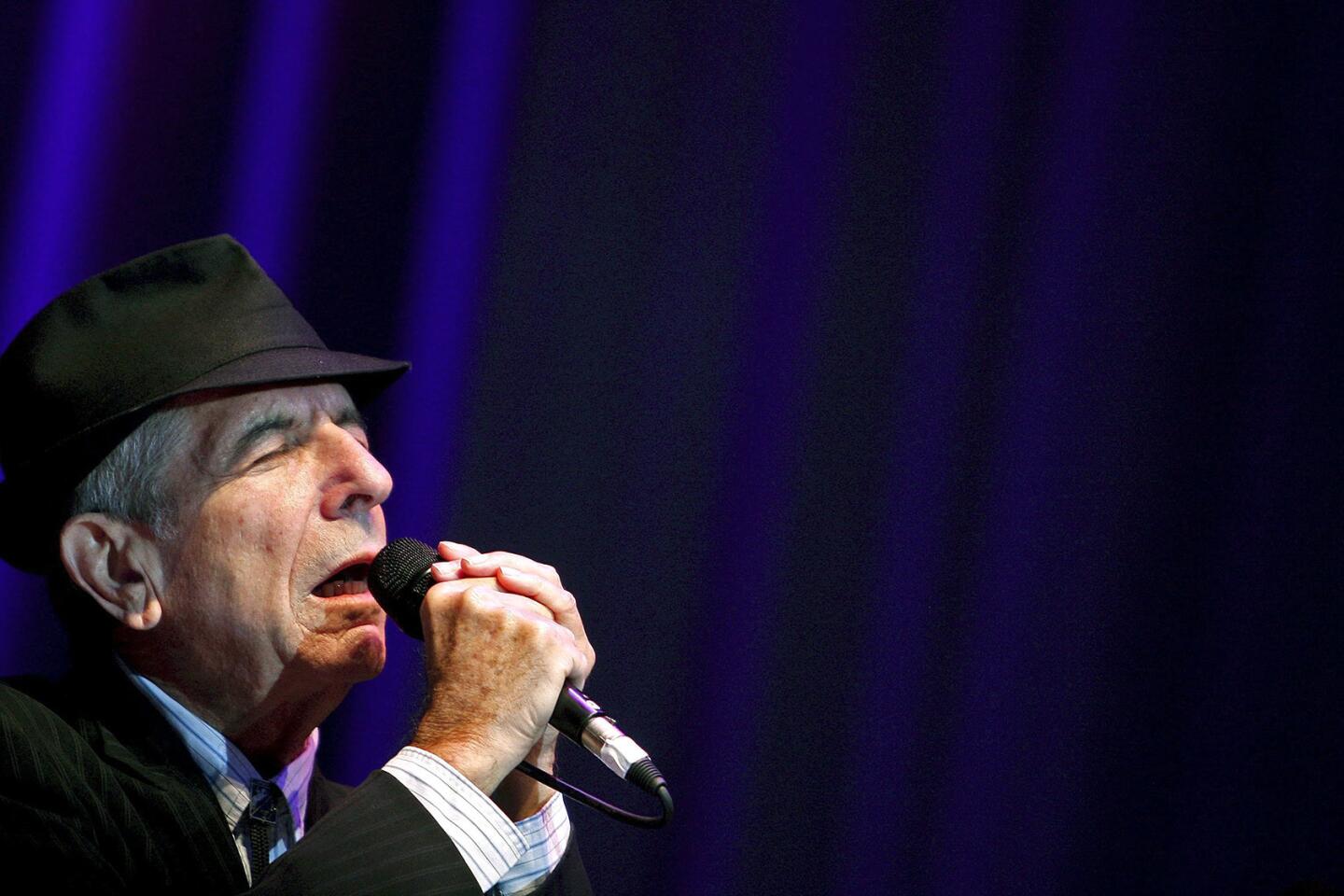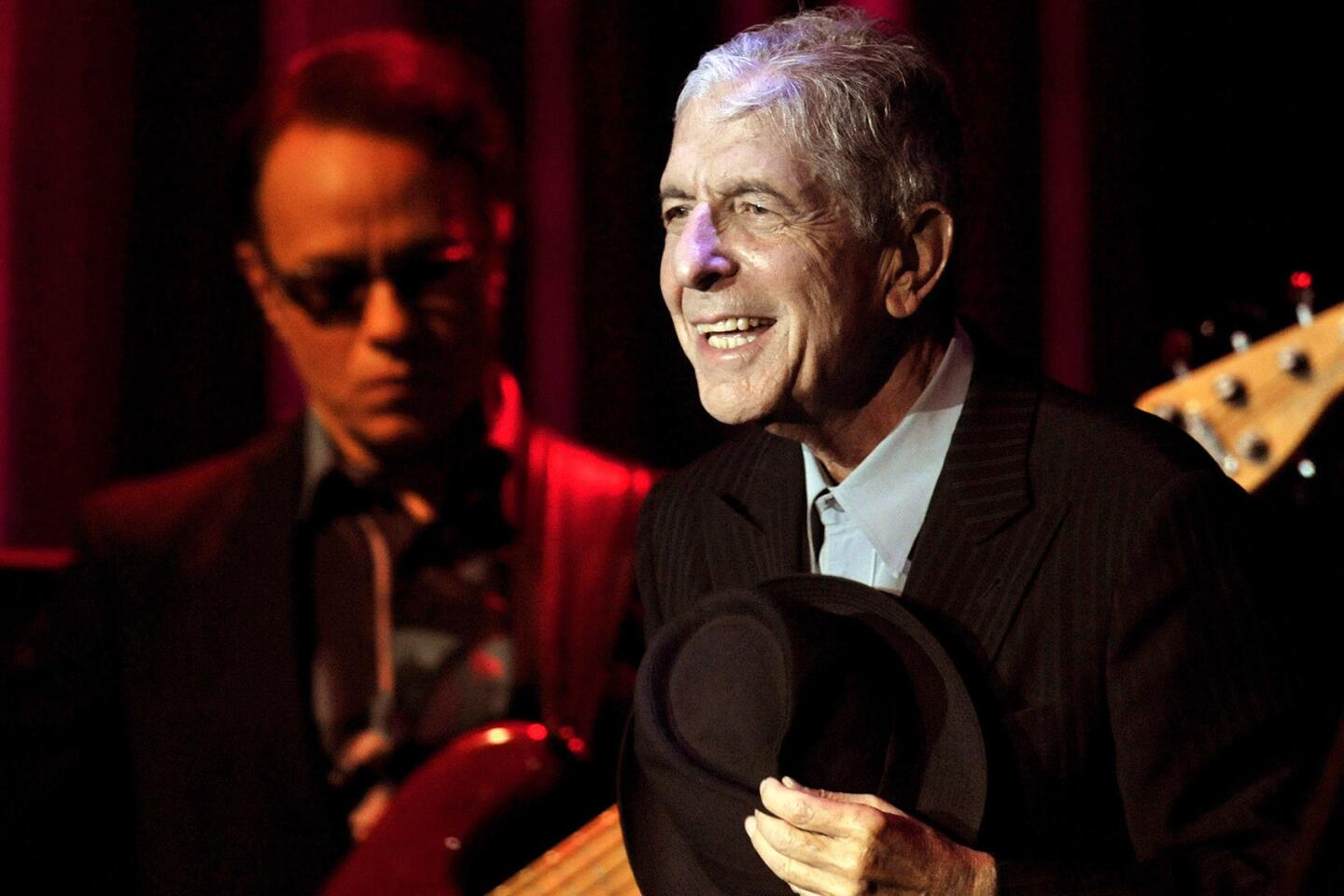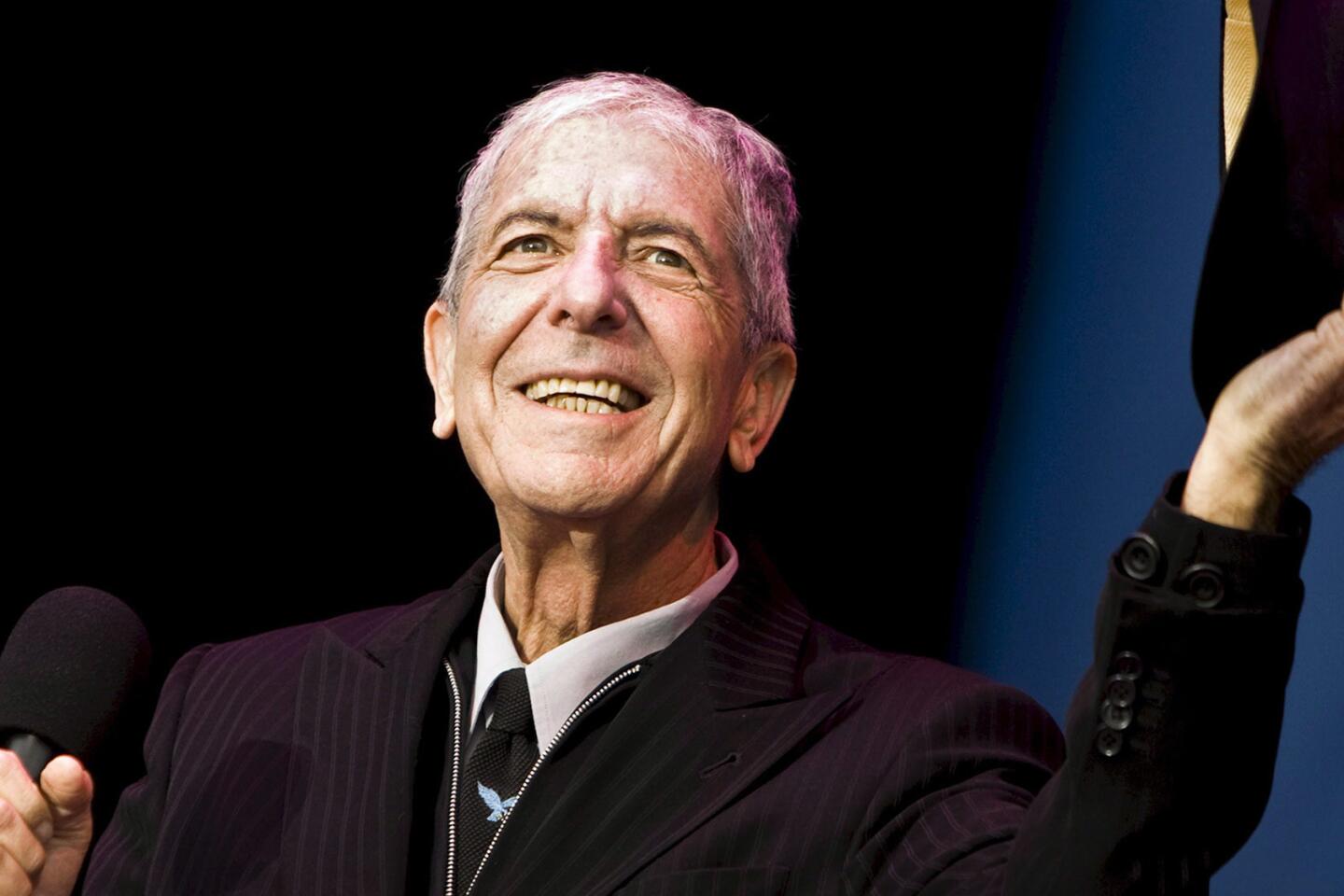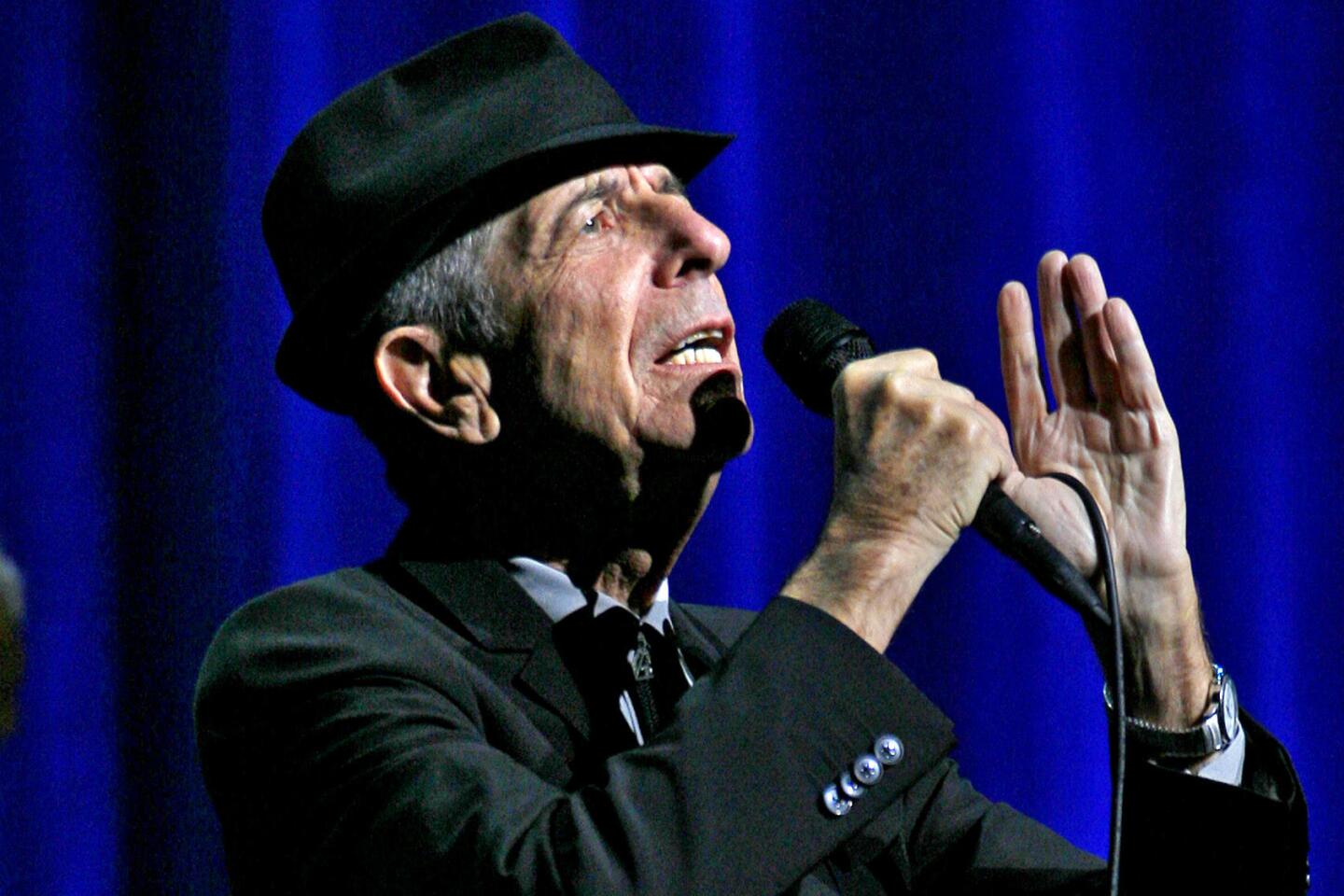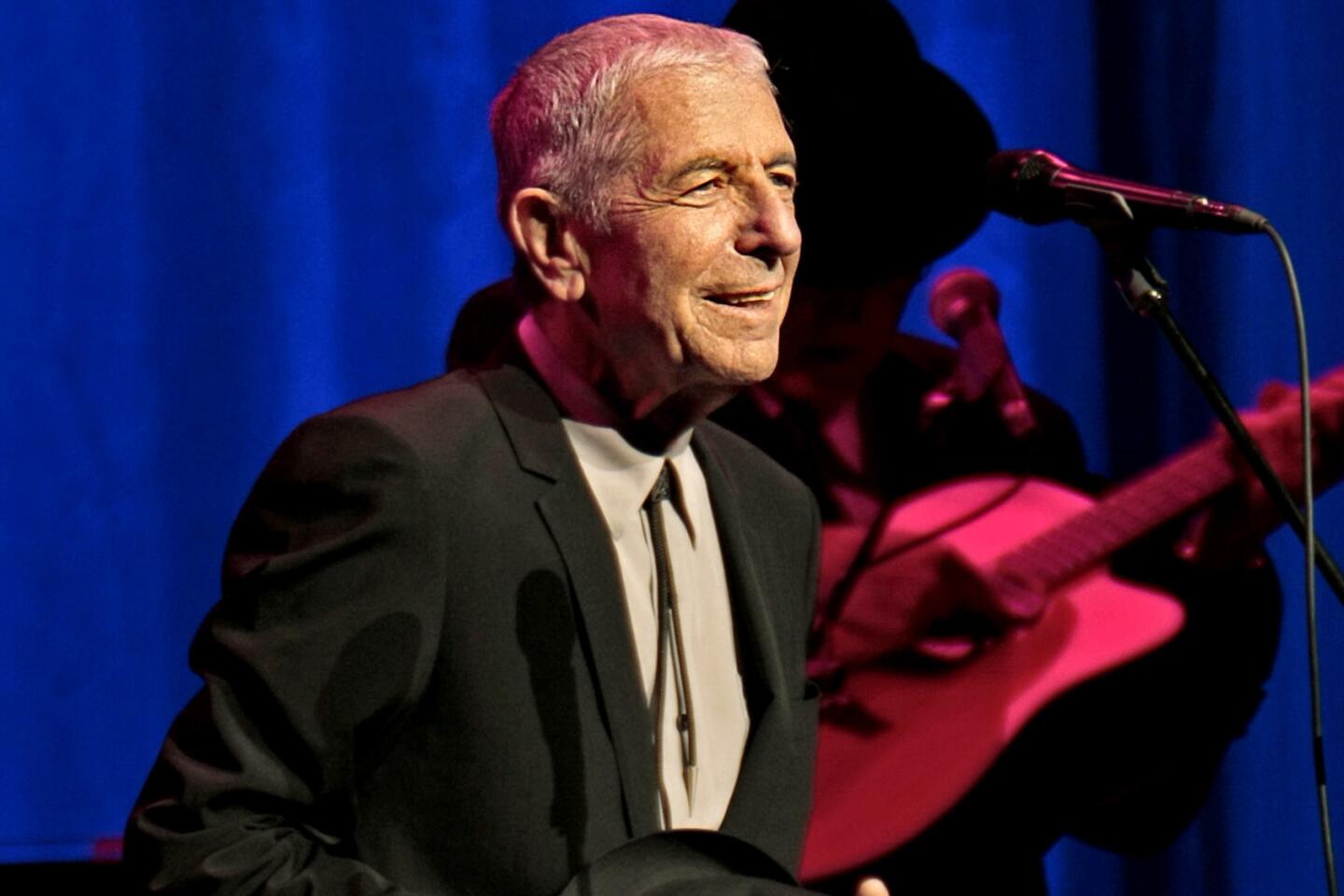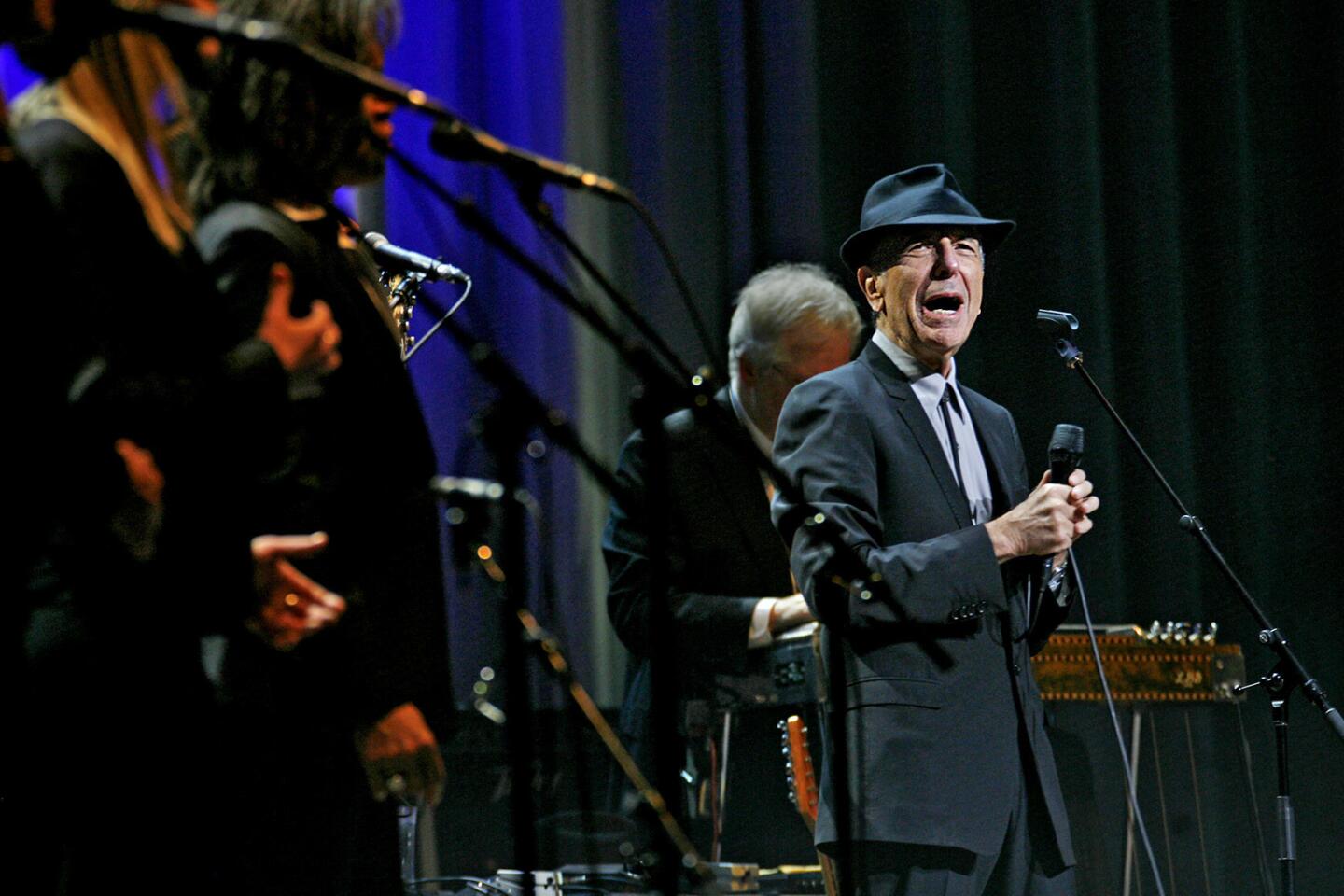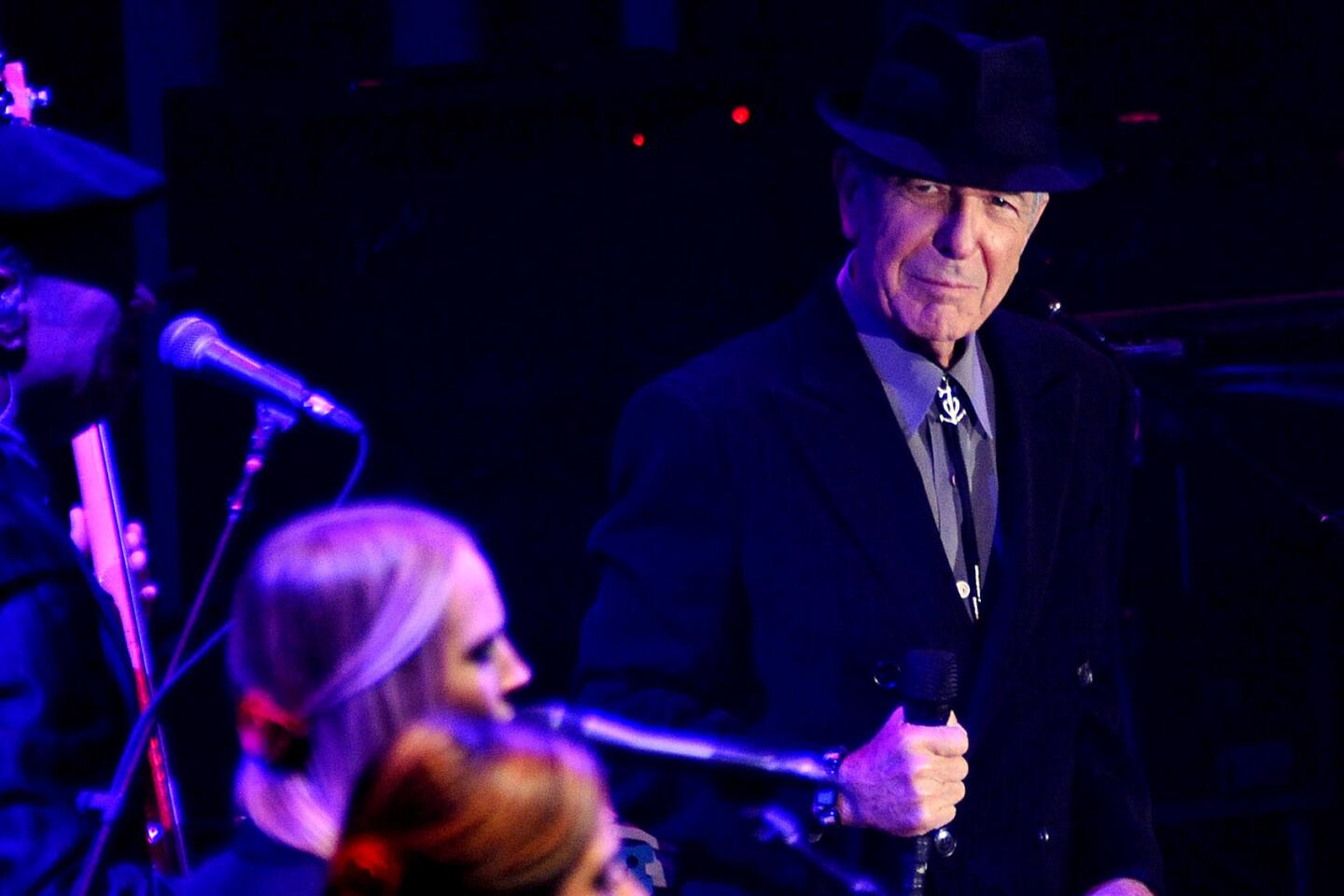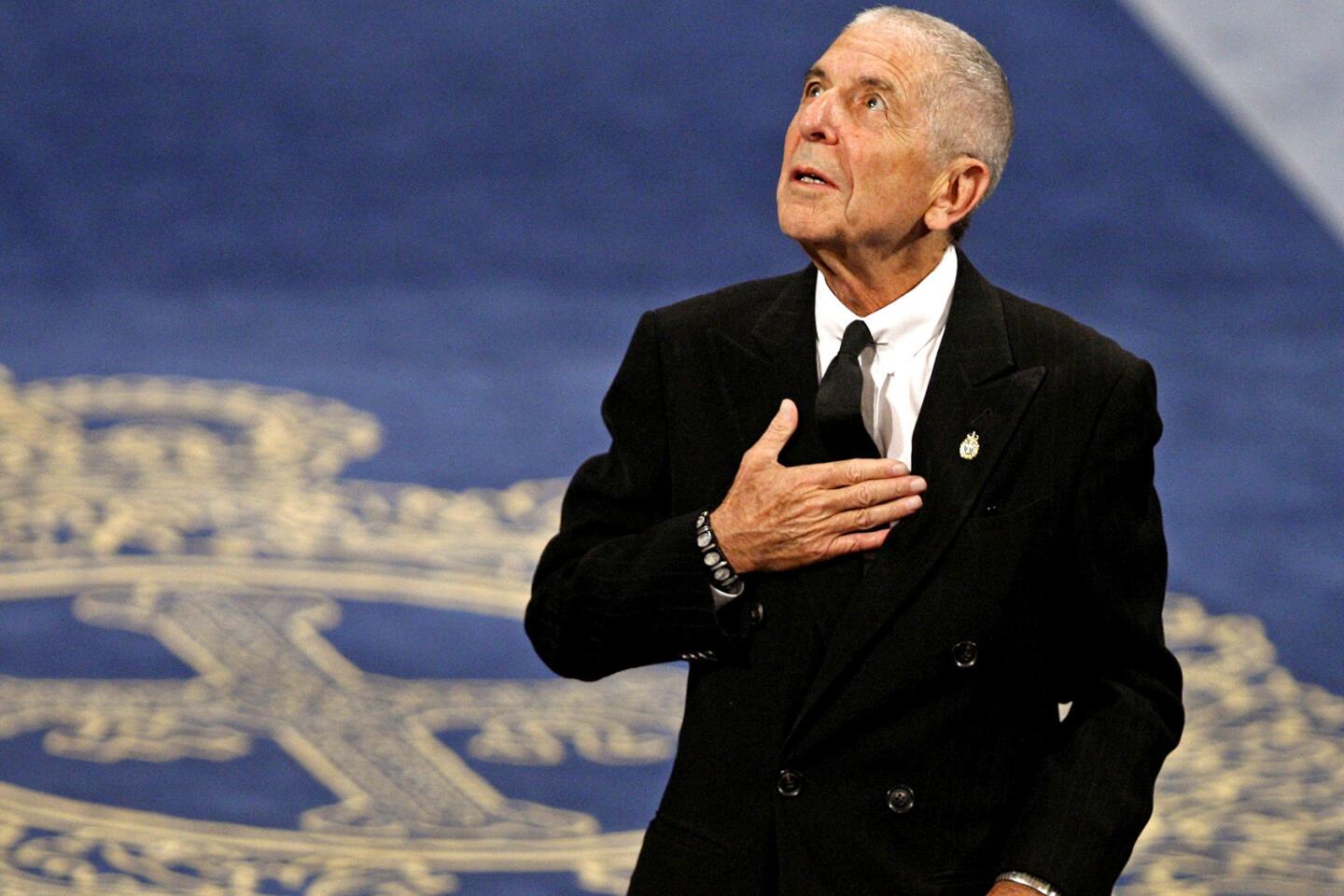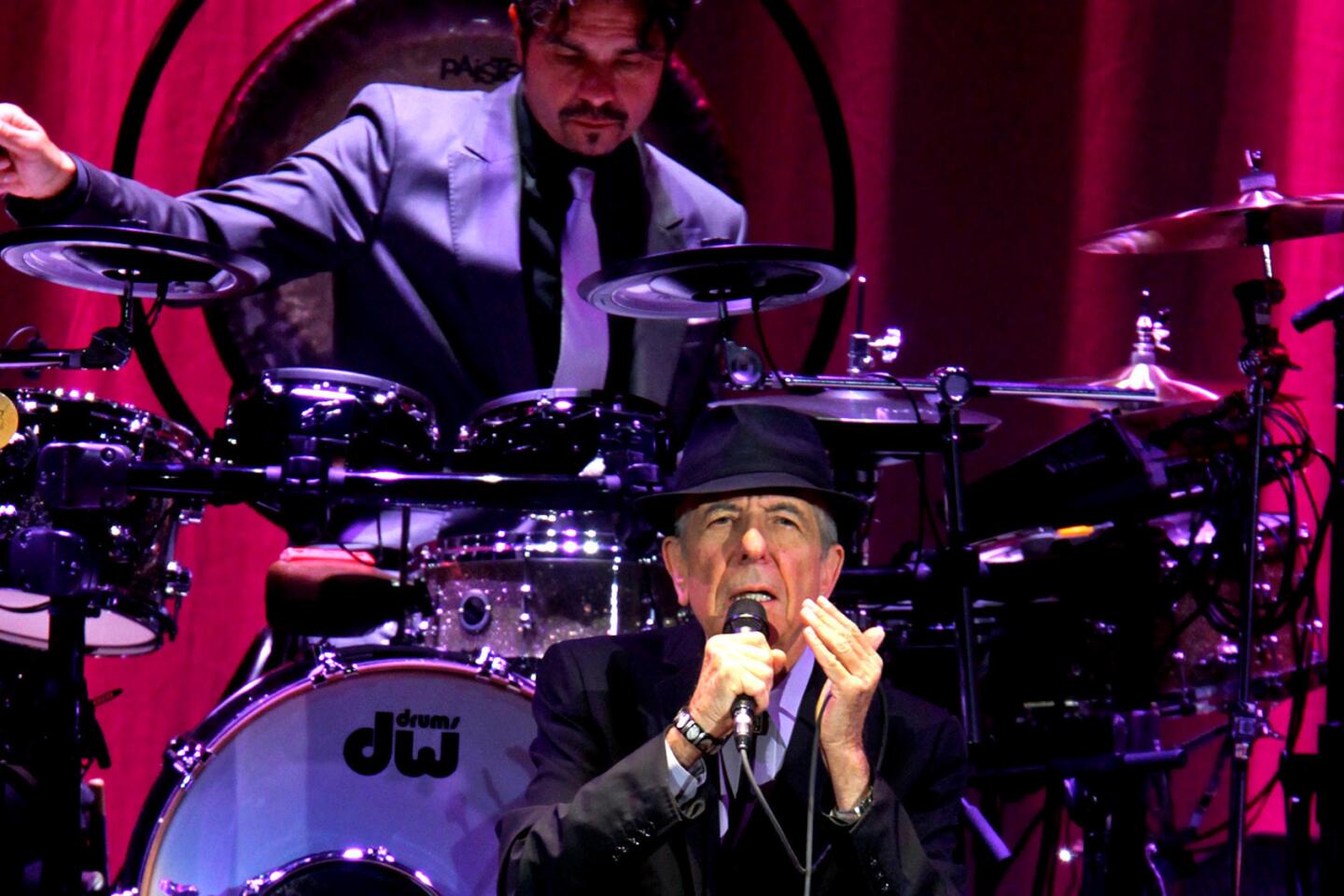Appreciation: Leonard Cohen always found just the right words
Through much of his life, Leonard Cohen was a man on the move.
The singer, songwriter, poet and novelist died this week, leaving behind a musical travelogue that documented his journey in lyrical detail while exploring questions of faith and morality, sex and betrayal, love and hate. He was 82.
“I have no program. I have no five year plan,” he told a crowd during a 1985 performance while introducing “Chelsea Hotel No. 2,” which details his tryst with Janis Joplin. “I just move from hotel to hotel and from bar to bar, and by the grace of the one above, occasionally a song comes.”
Cohen’s first musical successes came during folk’s great leap forward in the late 1960s alongside Joni Mitchell and Bob Dylan. He introduced himself with now-standards including “Bird on the Wire,” “Suzanne,” “Sisters of Mercy” and “So Long Marianne,” and across the next five decades issued 14 studio albums dense with wit, charm, cruelty, harsh self-judgment, bitterness, grace and profound, enduring empathy.
A novelist and poet before turning to song, Cohen mastered his craft across the decades, and singers lined up to record his work, including Nina Simone, Johnny Cash, Tori Amos, Lana del Rey, Nick Cave, Jennifer Warnes and R.E.M.
When Kurt Cobain requested “a Leonard Cohen afterworld so I can sigh eternally” in Nirvana’s “Pennyroyal Tea,” he captured the artist’s essence while directing an army of mope-rockers toward Cohen’s music.
“My tunes often deal with a moral crisis,” he told writer Harvey Kubernik. “I often feel myself a part of such a crisis and try to relate it in song. There’s a line in a poem I wrote that sums this up perfectly: ‘My betrayals are so fresh they still come with explanations.’”
The trajectory of his lyrical adventures ranged from memories of romance in “Chelsea Hotel No. 2” to being the father of two children in “Night Comes On” to committing to a monastic life at a Buddhist retreat in which he composed gorgeous meditations and recollections on life, death and the space in between.
In his 2012 song “Come Healing,” he wrote of the “longing of the branches to lift the little bud” and the “longing of the arteries to purify the blood.”
He offered his fearless perspective — unafraid to assume the voice of God in “Nevermind” or serve as soothsayer on “The Future” (which “is murder”) — through a voice that hardly seemed the perfect vessel. Early recordings capture an unrefined, nasally baritone whose cords hadn’t yet been sanded by cigarettes but whose words render such concerns moot.
Across the decades, he penned work that combined wit, intellect and an ear for a sharp turn of phrase.
He was merciless on himself. “I am not this hunchback that you see,” he sang in “Avalanche.” He described his “secondhand physique” on one version of “A Thousand Kisses Deep.” The interlude during “Chelsea Hotel No. 2” quotes his lover: “You told me again, you preferred handsome men/ But for me you would make an exception.” For his song “Field Commander Cohen,” he painted himself in the third person as “the patron saint of envy and the grocer of despair.”
Those turns of phrase!
Our perfect porn aristocrat, so elegant and chic. I’m cold as a new razor blade. There is a crack, a crack in everything — that’s how the light gets in. We are ugly but we have the music.
Dance me to the children who are asking to be born. Dance me through the curtains that our kisses have outworn. All I’ve ever learned from love was how to shoot somebody who outdrew you. Let’s not talk of love or chains and things we can’t untie.
Musically, instrumentation was never secondary, but on his recordings it often seemed distant, as though the poet were reciting in rhythm to a band playing in an adjoining lounge. Throughout his career, he dotted his songs with melodies inspired by his Jewish heritage, but his voice and lyrics always took precedent.
Loath to repeat himself in song, Cohen pushed his pen in new directions until the very end. His swan song, “You Want It Darker,” was issued last month. On the title track he acknowledged his artistic success while belittling his life’s challenges, singing that he “struggled with some demons, they were middle class and tame.”
As with every line he wrote, his gaze was unflinching as he faced the final goodbye. “I’m ready my Lord,” he offers in the title track. “I’m ready.”
ALSO
Leonard Cohen dies at 82, singer-songwriter of ‘Hallelujah’ had a literary sensibility
Leonard Cohen on new ‘You Want It Darker’ album: He’s not done yet
So long, Leonard Cohen. We need you now more than ever
More to Read
The biggest entertainment stories
Get our big stories about Hollywood, film, television, music, arts, culture and more right in your inbox as soon as they publish.
You may occasionally receive promotional content from the Los Angeles Times.
